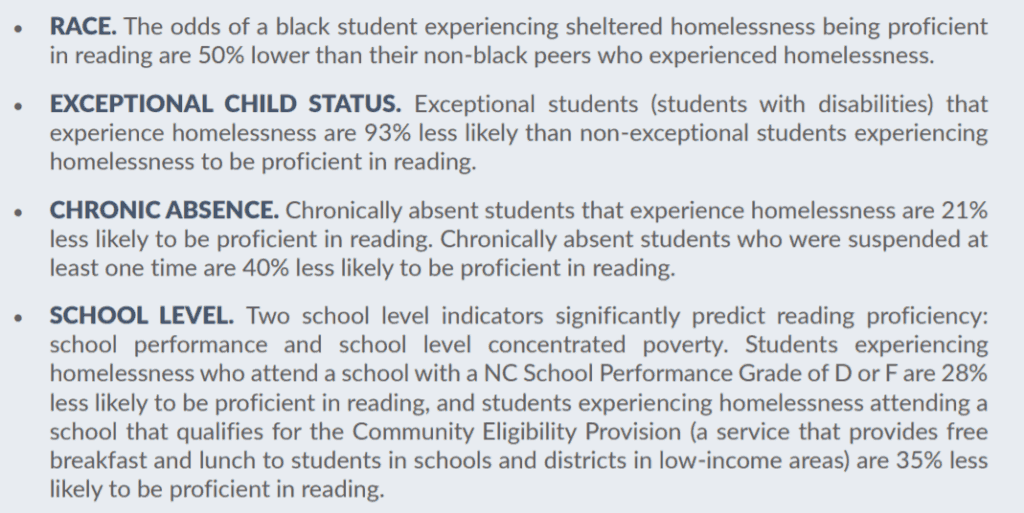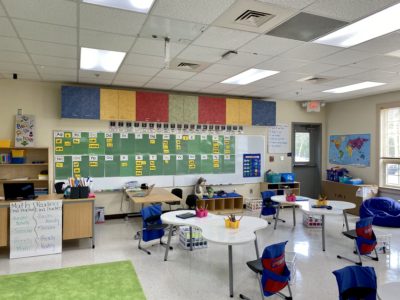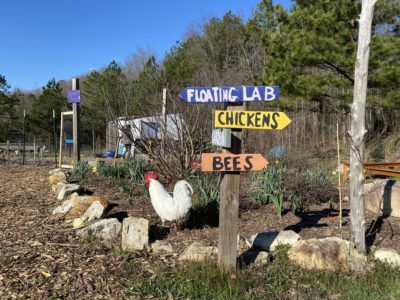
|
|
This is the second piece in a week-long series on schools, districts, and organizations across the state using data in innovative ways. Read the first piece on Shamrock Gardens Elementary School here, and follow along with the rest of the series here.
Imagine the layers of a student’s life as a skyscraper. Rooms on the first floor contain all the education data on that student — including her attendance, behavior, academic outcomes, and social-emotional strengths. That data paints a certain picture, but there’s more to this student than just one floor. As you ride the elevator up, each remaining floor contains data on things like her housing situation, health records, access to social services, and more.
Education doesn’t operate in a silo. If you stop on the first floor, you might be able to draw conclusions about a student, but you would miss out on a lot of information about other things happening in her life. To really understand educational outcomes for children and their families, you would need to take a birds-eye view of the skyscraper, gathering data on the whole child across a range of systems, organizations, and factors.
The Institute for Social Capital (ISC) at UNC Charlotte does just that. Founded in 2004 and housed within the UNC Charlotte Urban Institute since 2012, the Institute for Social Capital is home to North Carolina’s oldest and most comprehensive integrated data system. Its mission is simple: support university research and increase the community’s capacity for data-informed decision-making. For more on the history and governance of the ISC, read this case study.
The ISC’s community database combines administrative data from more than 45 different agencies in the Charlotte metropolitan area, providing a comprehensive database that can match information across these organizations at the individual level. This allows researchers and community agencies to better understand and serve vulnerable populations and provides a powerful tool for program evaluation and data-driven policy creation.
“The strength we have is the ability to integrate across these different data sources. Something like the school district data and social services data don’t really communicate. But through data sharing agreements and statistical techniques, data linkages can put them together, and it allows for deep and robust research. That’s our bread and butter,” said Justin Lane, acting associate director of the ISC.
Agencies in the database include: Charlotte-Mecklenburg Schools, Kannapolis City Schools, Cabarrus County Schools, Mecklenburg County Sheriff’s Office, Mecklenburg County Department of Social Services (including Food and Nutrition Services and Youth and Family Services), Habitat for Humanity, Homeless Management Information Systems (20+ agency partners), Charlotte Housing Authority, Mecklenburg Partnership for Children (SmartStart), YMCA of Greater Charlotte, and more.
Let’s explore some of the ISC’s recent projects.

The impact of stable housing on education outcomes
Habitat for Humanity of Charlotte provides affordable, stable housing to housing-insecure community members and is one of the ISC’s data partners. In a recent series of projects, the ISC’s community database matched the records of individual Habitat for Humanity homeowners and their children across all of its data sources, providing a holistic view of their data and outcomes both before and after home ownership.
Researchers at the ISC were able to analyze students’ educational outcomes — including academic achievement, attendance, and suspensions — before and after they moved into stable housing. They also looked at how the students and their families used services within the Department of Social Services, their interactions with the sheriff’s office, and their involvement with other nonprofits in the database.
The results, particularly in educational outcomes, were striking.
“We saw the baseline year, which was the school year that families became homeowners, the kids were lagging behind in academic achievement to demographically similar peers in the couple of comparison groups we made,” said Lane. “Within three years, they met and exceeded academic outcomes.”
According to Lane, the analysis also found that students’ attendance improved following home ownership.
“For vulnerable populations, if their attendance is just staying level, then that’s a good thing. If it’s not going down, that’s a good thing — but we saw their attendance go up on average of about two days per school year once they became homeowners,” said Lane. “It just speaks to stable housing.”
In another phase of that research, the ISC conducted interviews with long-term homeowners and with children who grew up in Habitat for Humanity homes. A lot of those conversations focused on how the students’ educational experiences were impacted by moving into stable housing.
Lane recalled one comment from a parent that still sticks with him.
“A woman said something like: ‘There’s no way my son would’ve been able to go to college and be in law school if it wasn’t for Habitat.’ And we saw a lot of that over and over. Parents saying I now have the time … to work with my kids on their homework, and their grades got better because I was able to spend time with them.”
Projects like this allow nonprofit partners of the ISC like Habitat for Humanity to better understand the impact of their programming and make data-informed decisions to better serve their community.
Tracking the persistence of strong early literacy skills
Because the ISC’s database includes longitudinal data from multiple decades, it can also be used to identify the long-term impacts of interventions. The ISC recently completed a project with a preschool in Charlotte that’s located in a predominately low socioeconomic neighborhood. That preschool, according to Lane, has a strong reputation for teaching early literacy.
Although the preschool was collecting data on the students it served, they had no way to track future outcomes once the students moved on from the school. They wanted to know if those strong literacy skills in the early childhood years impacted literacy as students moved through elementary and secondary education.
The ISC used its database to identify the academic outcomes of alumni of the preschool. For some of those students, data was available all the way through 10th grade. And researchers found that those strong literacy skills held.
“That group is almost all low socioeconomic status and 95% students of color. When they got into high school, they were on average about 80% proficient at English II and their peers are at 55 to 60% proficient, so it was pretty shocking to see,” said Lane.
Without the ISC’s community database, the evidence of long-term impacts on literacy for graduates of the preschool would be anecdotal at best.

Identifying gaps in Charlotte’s homeless youth
What impact does homelessness have on students? And, how many of Charlotte’s homeless youth are connected to services? The Charlotte-Mecklenburg Family Homeless Snapshot for 2014-15 combines data from multiple sources to answer these and other questions — something that wouldn’t be possible without the ISC’s community database.
For the report, the ISC linked data from Charlotte-Mecklenburg Schools (CMS) and the local Homelessness Management Information System to better understand the experience of children facing homelessness. Specifically, the report studied how children experiencing homelessness were or were not connected to McKinney-Vento services, which provide federal funding to districts and certain guarantees to students, such as transportation to and from the student’s original school.
The findings were stark — 38% of CMS students in an emergency shelter or transitional housing during the 2014-15 school year were not identified as McKinney-Vento. Data on students experiencing homelessness are often under-reported by McKinney-Vento counts for a variety of reasons such as lack of knowledge about the program and a lack of self-reporting due to fear or embarrassment.
“There were 267 kids that were literally homeless — that had been in the emergency shelter or transitional housing — but weren’t identified correctly so they were not receiving homelessness services through the school system,” said Lane.
As a result, CMS put a trained McKinney-Vento social worker at the homeless shelter to work with kids and parents to ensure they qualified to receive services.
The report also studied the likelihood of reading proficiency for students experiencing homelessness. Some of the findings are outlined below.

Looking ahead
What’s next for the ISC? According to Lane, the ISC recently brought on a mental health provider as a data partner and is working out data sharing agreements with all the health systems in the Charlotte area — some of which are three years in the making. The ISC is also partnering with the Opportunity Insights group based at Harvard University on analyzing economic mobility in Charlotte.
And, the ISC recently applied for a grant that would allow them to get data from the state on all births in Mecklenburg County between 1990 and 2000. If they receive the grant, they plan to take those records and match them with their existing database, including education, social services, and nonprofits. Then they will match those individuals to the National Student Clearing House to conduct predictive analytics on long-term educational outcomes, such as which students attained STEM degrees and what pathway they took to reach that degree. With access to birth and health records, the ISC will be able to track data from cradle to career.
Recommended reading




